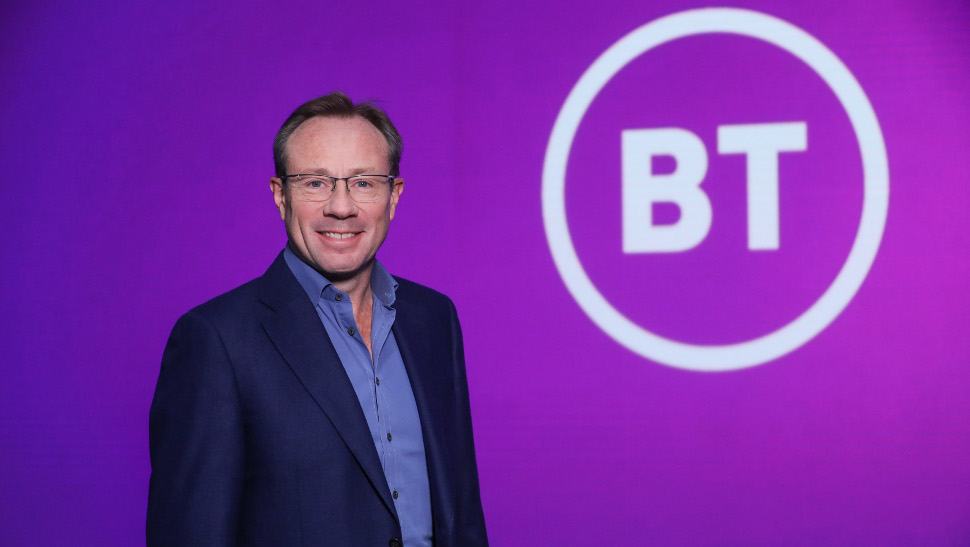BT reveals revenue boost as it prepares for new CEO
Profits rise as Philip Jansen set to leave BT

Sign up for breaking news, reviews, opinion, top tech deals, and more.
You are now subscribed
Your newsletter sign-up was successful
As it prepares to bid CEO Philip Jansen farewell, BT has released its earnings report for for the quarter, demonstrating improvements across the board.
The British telecoms giant has reported revenue growth of 4% year-on-year for its Q1 2024, hitting almost $6.76bn.
The improvements were fueled mostly by its Openreach division, responsible for BT's broadband network, which saw revenue up 8% year-on-year.
Profits are up
Openreach is now almost halfway (44%) to its target of providing 25 million homes with full fibre by the end of 2026, BT said, noting it had added more than 380,000 new customers to bring the total number of 'fibre to the premises' (FTTP) connections to 3.5 million.
Pro forma adjusted earnings before interest, taxes, depreciation and amortization (EBITDA) were $2.60bn, up 5% with revenue flow through cost and control, more than offsetting cost inflation, the company added, while business EBITDA declined due to increased input costs and legacy high-margin managed contract declines.
Reported profit before tax is almost $700m, up 11% primarily due to EBITDA growth partially offset by specific items, BT concluded.
At the same time, the number of broadband customers dropped by 126,000 due to “competitor losses combined with a weak broadband market and communications providers ceasing copper lines”.
Sign up to the TechRadar Pro newsletter to get all the top news, opinion, features and guidance your business needs to succeed!
“We’ve made a strong start to the year, in what remains a very competitive market,” CEO Philip Jansen said. “Consumer is seeing solid pro forma growth driven by pricing and mix, as customers choose higher performance connections; and Business grew its order book, driving revenue growth for the combined unit. We continue to drive transformation across the group, and while there remains much to do it’s clear that our strategy is working and BT Group is set up for success.”
Earlier this month, it was reported that Jansen will step down within the next 12 months when certain conditions are met. BT also plans on shrinking its workforce by some 40% by the end of the decade, as it transforms into a leaner, more agile business.
- Check out the best cheap mobile phone plans
Sead is a seasoned freelance journalist based in Sarajevo, Bosnia and Herzegovina. He writes about IT (cloud, IoT, 5G, VPN) and cybersecurity (ransomware, data breaches, laws and regulations). In his career, spanning more than a decade, he’s written for numerous media outlets, including Al Jazeera Balkans. He’s also held several modules on content writing for Represent Communications.